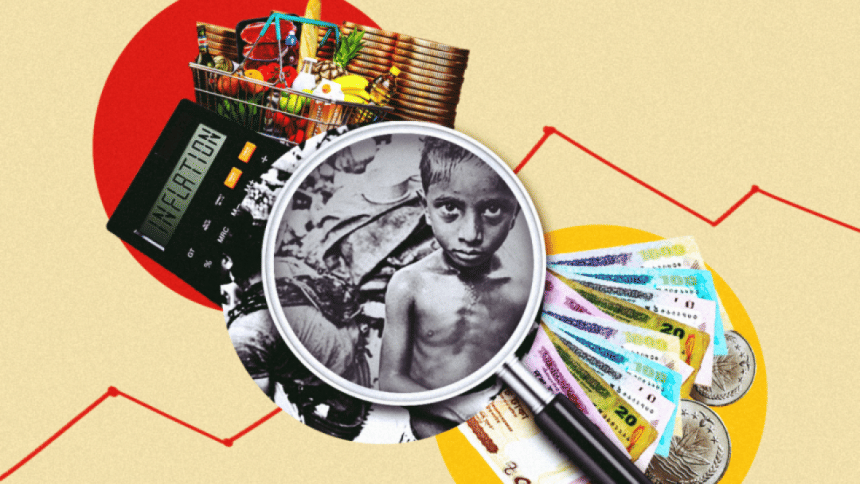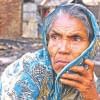Global lessons to redesign social protection in Bangladesh

Like many other streams, the July uprising has opened up new opportunities for redesigning the social protection mechanism in Bangladesh. High income inequality and changing dynamics in the labour market necessitate the adoption of pertinent policies that are appropriate considering the country's socioeconomic climate. The National Social Security Strategy (NSSS) was initiated in 2015 to institutionalise a well-grounded social security policy in the country and to prioritise the needs of the most vulnerable segment of people. Despite the strategy being quite thorough in restructuring the outlook of social safety nets in Bangladesh, incorporating best practices globally would possibly make the mechanism more methodical.
Policies taken in countries having a similar societal fabric as Bangladesh can be considered for implementation in our context. For example, in 2024, India came up with a medical insurance coverage of $6,000 per family for citizens aged 70 years and above, which, in the perspective of Bangladesh, can be crucial to refurbish the old-age-specific health insurance policies. The Indian government also approved a pension scheme which guarantees the federal employees 50 percent of their base salary as a pension, a move away from previous schemes where the payouts were intrinsically linked to the market returns, something which can also be considered in the case of Bangladesh to improve the current Universal Pension Scheme. India also has the Code of Social Security adopted in 2020, which holistically expands the social security benefits to the gig and platform workers. Bangladesh lacks any such system that can be one of the most instrumental measures in bringing this spectrum of the workforce under the umbrella of social protection.
As the global landscape of the labour market is changing, holistic benefits for employees are becoming a prerequisite of a sound social protection mechanism. The Indonesian government implemented a programme for job loss security, which systematised various incentives for the employees, including cash benefits, access to labour market information and online or offline job training. The incorporation of similar policies in our NSSS can be crucial in expediting better working conditions.
Indonesia also has a law on mother and child welfare that aims to ensure the well-being of mothers and children during the first 1,000 days of the children's lives, starting from conception, enhancing the benefits of maternity leave, something Bangladesh doesn't have a legislative equivalent of. When it comes to maternal and child social protection policies, Argentina passed a law in 2021 which can be considered a benchmark, as it ensures that women can earn the equivalent of a year of social security contributions for every single child they have raised. And in the case of an adopted or disabled child, the benefit extends for two years. Bangladesh is still far behind regarding the undertaking of innovative social safety net practices for mothers and children, and these global practices can be a baseline for the country to follow.
Social safety nets specifically enforced for women of minority ethnic origins are not uncommon in the world as well. Mexico has implemented the "Pensions Mujeres Bienestar," a programme which provides a monthly financial support of 3,000 pesos to women aged 60-64 years, particularly those belonging to the Indigenous and Afro-Mexican communities, a policy that can be regarded as a cornerstone in financially supporting women belonging to Indigenous communities in Bangladesh.
Meanwhile, having a lot of frameworks for a specific law can turn out to be quite cumbersome for policymakers. Egypt, in this regard, has unified various social insurance schemes under one framework: Social Insurance and Pensions Law of 2019. Such a unified, comprehensive outline for social insurance schemes can also be looked into in the context of Bangladesh.
Nigeria, Kenya, and Thailand have welfare policies specifically laid out for senior citizens. Kenya has a universal social pension scheme from 2018 for persons over the age of 70 years, an age-specific threshold that can be incorporated into the existing social protection mechanism of Bangladesh. Nigeria, on the other hand, established the facilitation of a National Senior Citizens Centre in order to cater to the needs of senior citizens above the age of 70 years, a model which can be followed by Bangladesh, specifically to cater to the needs of elderly people residing in urban areas. Thailand has had the provision of a non-contributory pension scheme for elderly citizens since as early as 2009. Bangladesh can emulate the coverage and the non-contributory nature of this allowance.
Social protection policies throughout the world are rapidly evolving, taking into account the needs of an ever-changing world where the principles of leaving no one behind are stronger than ever. As a paradigm shift has occurred in Bangladesh, considering the climate of reform and the undertaking of new and innovative practices, there is no better time for reconditioning the current laws and policies in the domain of social protection as well as replacing outdated policies with modern ones that have turned out to be effective in the global context.
Rassiq Aziz Kabir is a policy analyst. He can be reached at [email protected].
Views expressed in this article are the author's own.
Follow The Daily Star Opinion on Facebook for the latest opinions, commentaries and analyses by experts and professionals. To contribute your article or letter to The Daily Star Opinion, see our guidelines for submission.

 For all latest news, follow The Daily Star's Google News channel.
For all latest news, follow The Daily Star's Google News channel. 









Comments